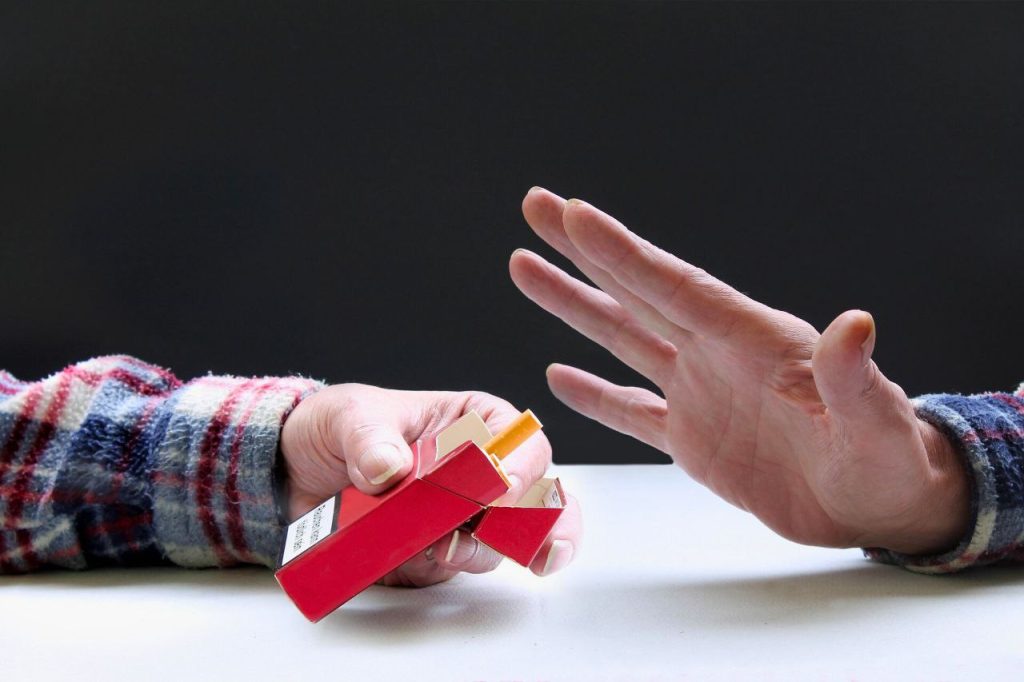Quitting smoking after 40 becomes possible when you interrupt the old routine and let your body reset. This guide shows how real-life experience, not tricks, leads to steady recovery and freedom.
Quitting smoking at any age is hard, but many people specifically search for how to quit smoking after 40 because something changes around that period of life. Health becomes more fragile. Fatigue feels deeper. Recovery slows down. Cigarettes stop “helping” and start quietly taking away the things that make life enjoyable — energy, breathing, patience, focus, physical strength.
This article is not a technical guide and not a motivational speech. It’s a real story, grounded in everyday experience, supported by verified scientific evidence, and written for adults who’ve smoked for decades and finally want change — but want it realistically, humanly, without clichés or childish advice.
Why I Decided to Quit Smoking After 40
It’s hard to quit smoking without a strong reason. Simply knowing it harms your health often isn’t enough. But once health issues appear, the decision becomes urgent: either you quit smoking, or smoking slowly destroys you.

Life Before Quitting: What Smoking Looks Like After 40
When you smoke for many years, the ritual becomes part of your identity:
morning cigarette to “wake up”,
one after meals,
one during stress,
one on the way to work,
one before bed,
and many more in between.
By your forties, this pattern is often 20–25 years old. And it doesn’t feel like a dangerous addiction — it feels like your “normal life”.
But the body tells the truth long before the mind does.
For me, the changes came quietly:
stairs became harder,
morning coughing took longer to stop,
some days breathing felt “thicker”,
small tasks exhausted me more than they should,
the sleep that used to restore me stopped doing its job.
Nothing dramatic. Nothing sudden. Just a slow, steady decline — the kind that makes you feel older than you should.
I tried quitting several times. Like most long-term smokers, I had the classic cycle:
1. Throw out cigarettes.
2. Feel motivated.
3. Experience two rough days.
4. “Just one cigarette to calm down.”
5. Back to a full pack the next day.
Years passed like this.
And then… life showed me a different route.
The Turning Point: How Illness Broke the Pattern
The moment everything changed wasn’t heroic. It wasn’t well-planned. It wasn’t some “motivational” breakthrough.
It was illness.
Not a dramatic, life-threatening disease — just the kind of sickness that knocks you down for a week: weakness, fever, chest pressure, poor breathing, that heavy feeling deep in the lungs when every inhale feels like work.
For the first time in decades, I physically couldn’t smoke as much. Not because of willpower — because cigarettes suddenly tasted wrong and made everything worse.
This moment — when the body temporarily disrupts the smoking routine — is extremely powerful. Most people waste it. They think:
“As soon as I recover, I’ll smoke normally again.”
I thought differently.
Lying there at my weakest, I understood one thing with absolute clarity:
“If I go back to smoking after this, I will return to this same weak, awful state sooner or later — but worse.”
So I made the simplest possible decision:
No cigarettes while I’m sick. Not a single one.
And because my body already rejected them, this wasn’t willpower — it was self-preservation.
When I started feeling a bit better, I didn’t “reward” myself with a cigarette. Instead I told myself:
“You already made progress without trying. Let’s see how far this goes.”
And the next day — the same. And the next.
This wasn’t discipline. It was fear mixed with clarity.
Illness interrupted a decades-long pattern. And I chose not to restart it.
What Science Says Happens When You Quit After 40
For many years, people believed that quitting after 40 was “too late”. That is absolutely false.
Studies from respected health organizations prove the opposite:
✔ NHS Benefits of quitting smoking
✔ University College London (2025) Study on cognitive decline after quitting
✔ The Lancet Healthy Longevity (2025) PubMed PMID: 41101323 DOI: 10.1016/j.lanhl.2025.100753
In simple words:
it is never too late,
your body still knows how to repair itself,
and improvements begin much faster than people expect.
The First Days and Weeks: A Realistic Look (Not a Fairy Tale)
The first week wasn’t easy. But it also wasn’t the nightmare that smokers imagine.
Day 1–3:
no cigarettes,
irritability,
restlessness in the evenings,
mind constantly thinking about “just one”.
But because I already had those days of forced reduction from illness, my body was not shocked — it was already halfway detached.
Week 1:
Breathing felt slightly easier. Still tired, but less chaotic energy in the chest.
Week 2:
Coughing decreased. Food had taste again. Sleep still unstable, but mornings were calmer.
Week 3–4:
This was the first time I woke up without craving.
Not because I suddenly became a strong person. But because my brain simply started forgetting its old patterns.
That’s the key point people miss:
Cravings are not a sign of weakness. They are the echo of a routine your brain used for decades — and it fades faster than people think.
How to Quit Smoking After 40 Without Tricks, Gadgets or “Systems”
Many guides overcomplicate everything. People over 40 don’t need tricks — they need reality.
✔ Remove the physical presence of cigarettes
Throwing them away is not symbolic. It breaks the immediate reaction loop.
✔ Change the location of your “smoking moments”
If you smoked:
on the balcony → stay inside,
by the window → walk to another room,
in the kitchen → go outside for fresh air without smoking.
This disrupts autopilot.
✔ Keep your hands and mouth busy in normal ways
Not toys. Not gadgets. Not “anti-smoking tools”. Just life:
water,
chewing something simple,
washing hands,
stepping outside for air,
talking to someone.
✔ Use movement
Not workouts — just walking. Movement reduces cravings dramatically.
✔ Avoid alcohol for 10–14 days
Not forever. Just until your brain breaks the smoking-alcohol link.
✔ Accept that discomfort is temporary
The hardest part lasts about 72 hours.
What Life Feels Like After Quitting in Your 40s
People expect fireworks. But the real improvements are quiet, almost subtle — until one day you notice everything at once.
For me, the change came in layers:
1. Mornings became silent
No coughing. No chest pressure. No reaching for a lighter before my body fully woke up.
2. Breathing became deeper
Not immediately, but in a few weeks.
3. Physical tasks became easier
Carrying heavy bags, climbing stairs, walking faster.
4. The brain became cleaner
This is something few talk about: a lightness in thinking that you forget existed.
5. Mood stabilized
Not joy — stability. A calmness that cigarettes always stole.
6. A new identity formed
I stopped being “someone trying to quit smoking” and became: a person who simply doesn’t smoke anymore.

Why This Approach Works Specifically for People Over 40
Because adults over 40:
don’t want gimmicks,
don’t want childish methods,
don’t have patience for fake psychology,
don’t want to treat quitting like a game,
and they know what bad health feels like.
Your motivation becomes real, not theoretical.
You quit not because “you should”, but because you want to breathe, live, walk, think clearly, sleep normally and stay present for the next decades.
This is the real meaning: not tricks, but clarity.
Conclusion
If you’re over 40 and still smoking, here’s the truth:
You don’t need perfect discipline. You don’t need tricks. You don’t need to be “stronger”.
You need:
one real reason,
one clean break,
one disrupted smoking pattern (illness, health scare, exhaustion — anything real),
and a few weeks of patience.
Your body will take over from there. It truly knows how to heal.
Quitting smoking after 40 is not about becoming a different person — it is about returning to a healthier, clearer version of yourself. Many people fear that life without cigarettes will feel empty, stressful or “not like them”. But the truth is that life becomes more spacious, calmer and more real once nicotine stops controlling every hour of your day. You regain breathing, energy, emotional stability, and the simple human feeling of waking up without immediately needing something external just to feel normal. This is not a dramatic transformation — it is a steady reclaiming of your identity. And week by week, the new version of you becomes stronger, more grounded, and much more capable of living the next decades with purpose. Give yourself the chance to feel what life actually feels like without smoke. You deserve it.
This article is for general informational purposes only and does not replace medical advice. Consult a healthcare professional before making health decisions.
If you want more real-life guides for people over 40, visit other articles on Life After 40. Every guide is written to help you navigate midlife with clarity, stability and real practical tools.
Related Articles
Frequently Asked Questions
- Is it really possible to quit smoking after 40?
Yes. Research from NHS and UCL shows clear physical and cognitive improvements even when quitting in midlife. - How long do cravings last after quitting?
Most intense cravings fade within 72 hours, and habit-based cravings decrease significantly after 2–4 weeks. - Does quitting improve breathing at this age?
Yes. Studies confirm measurable gains in lung function, energy and overall stability within weeks after stopping smoking.
Written by Roman Kharchenko — founder of Life After 40, focused on practical, realistic lifestyle improvement for people over 40.
Scientific References and Trusted Sources
University College London. Late-life quitting and cognitive decline.

